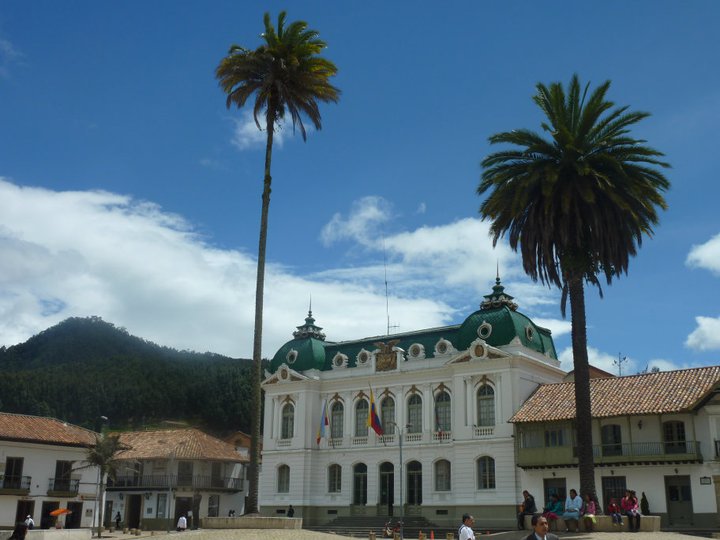It’s that time of year again when the only thing to get us through the next few months of dire weather and exams is the promise of adventures to sunny horizons. But for those who dare to venture beyond Europe to less developed countries, there are things to consider that often we’d rather not think about. When tourists opt to visit countries experiencing political unrest, tyranny and extreme poverty, do they bear any responsibility for contributing to and legitimising questionable regimes?
Lupine Travel is one of many tour operators offering trips to North Korea, with a four-day visit costing £499. Their website makes no attempt to gloss over the reputation of the isolated state. Instead, it uses it as a selling point, “the Secret State. The Democratic People’s Republic Of Korea. Whatever you wish to call it, it is a place like no other, completely shut off from the outside world since 1953.” Considering the extreme poverty that North Koreans face and the government’s recent nuclear testing, referencing a country’s political status to sell holidays seems rather unsavoury. While it may not be our duty to tackle irresponsible governments, tourists who visit North Korea can be seen to be condoning Kim Jong-Un’s rule. It seems impossible to visit a country without benefitting its government financially. What’s to stop money spent by tourists being used to finance missile experiments and other questionable projects? The revenue that tourists generate in North Korea could surely be better spent by charities seeking to help North Korean refugees. The same can be said of any country that faces tyranny or poverty.
On the other hand, it’s possible that the money brought in by tourists could help to mitigate the effects of economic sanctions on North Korean citizens. In a country that does not rely on tourism economically, perhaps it is only the people who suffer, rather than the ruling elites who live luxuriously despite being responsible for North Korea’s political isolation. Burmese opposition leader Aung San Suu Kyi has encouraged foreigners to travel to Burma for this reason, saying that they can choose to go about their trip in the right way, supporting ordinary citizens and not the government that oppresses them.
This poses the question of how to travel ethically – a relatively recent trend in tourism. Go Differently, an ethical travel company, cites small things such as not buying objects made from endangered plants or animal shell, and making the effort to support locally produced goods, as vital to ethical tourism. Other issues of importance include declining to ride poorly treated elephants or pet drugged tigers in Thailand. Choosing tours led by locals when you’re out there, as well as using homestays or smaller hotels are further steps in the right direction.
On a larger scale however, this might not be enough. There have been recent claims by The Sri Lanka Campaign for Peace and Justice that some attractions around the country are linked financially or politically to those allegedly involved in violations of human rights. This means that a visit to a National Park may not be as innocent as expected. Local people are often displaced so that their land can be used for tourism. This has been the case most recently in Tanzania, where last month the Minister of Tourism announced the opening of a “wildlife corridor” – a 1500 square metre land grab that will displace thousands of Maasai people and deprive them of essential grazing land and water for their cattle. Problems like these are highlighted by the charity Tourism Concern, which campaigns for “a world free from exploitation in which all parties involved in tourism benefit equally.” Not only do they raise money and awareness of their cause, they specifically target ministers in less-developed countries where unregulated tourism leads to problems for local people, such as the loss of access to clean water.
It seems somewhat unfair to say that just by visiting a place one supports the actions of hostile regimes. It’s fair to say that our own government does not do enough to discourage foreign powers from oppressing citizens. Returning to the example of North Korea, there is also the possibility that for those living in states that rely on censorship to maintain control, tourism provides a rare opportunity to make contact (however minor) with the outside world. Perhaps the biggest change we can make is to just pause and think, and make the effort to change the small things that we support while abroad. In particular, we can plan trips personally rather than travelling in organised groups. A good step is also to pay for things in the foreign country instead of through a travel agent at home.
The real problem for those who want to avoid unethical travel could even be before you leave home – air travel. The effects of the decision to take long-haul flights are far easier to gauge than attempts to make small changes in foreign countries. What can help is increased information about potentially unethical aspects of travelling. By all means go but do your homework and consider the consequences of your actions whilst there.
Henrietta Eagle-Wilsher


